On the morning of October 9, continuing the 50th Session, the National Assembly Standing Committee gave opinions on the draft Law amending and supplementing a number of articles of the Law on Prices. Vice Chairman of the National Assembly Nguyen Duc Hai chaired the discussion.
Removing institutional "bottlenecks", ensuring consistency and synchronization in the legal system
The Government's proposal presented by Finance Minister Nguyen Van Thang stated that this amendment to the Law aims to resolve issues related to streamlining the political system's organizational apparatus and rearranging administrative units, especially ending the operation of district-level administrative units nationwide from July 1, 2025 and organizing local governments into two levels.
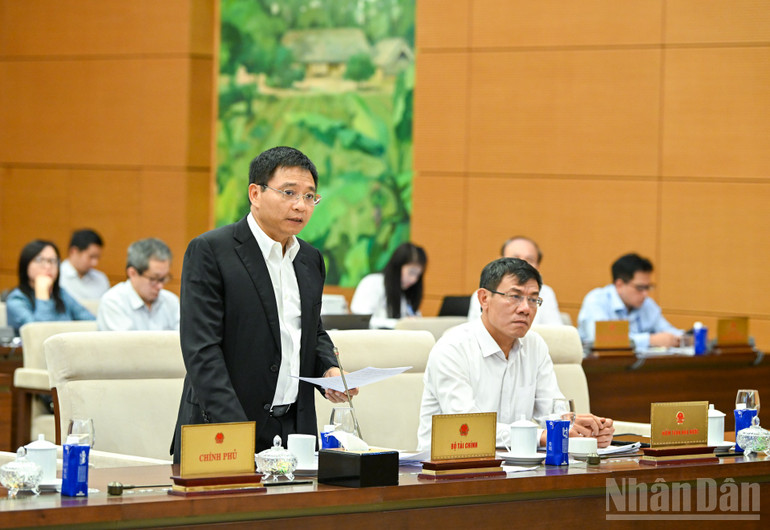
At the same time, promptly handle practical issues, remove institutional "bottlenecks", ensure consistency, synchronization and feasibility of the Law on Prices with the current legal system and in accordance with international commitments.
According to the Minister, the draft amended Law stipulates the transfer of responsibility for implementing price stabilization from the District People's Committee to the Commune People's Committee, to conform with the two-level local government model.
Amending and supplementing the names and pricing authority for a number of goods and services in the fields of natural gas, aviation, vehicle inspection, labor safety inspection, securities, national reserves, railways and public products and services in healthcare and education and training.
The bill also adds infrastructure services for industrial parks, economic zones... invested from the state budget to the List of State-priced services, with specific pricing authority belonging to the People's Committees at the provincial level.
Regarding inspection and examination, the draft Law abolishes regulations on specialized price inspection, and references the implementation of price inspection and price appraisal according to the provisions of the law on Inspection to synchronize with the 2025 Law on Inspection.
At the same time, reduce unnecessary conditions, simplify conditions for granting certificates for business in valuation services, specifically abolish the regulation requiring authorized representatives of capital contributing organizations to have a valuation card.
The Government proposes to develop a Law following a shortened procedure in urgent cases to resolve problems arising in practice; proposes the National Assembly to consider and approve it at the 10th Session of the 15th National Assembly (October 2025).
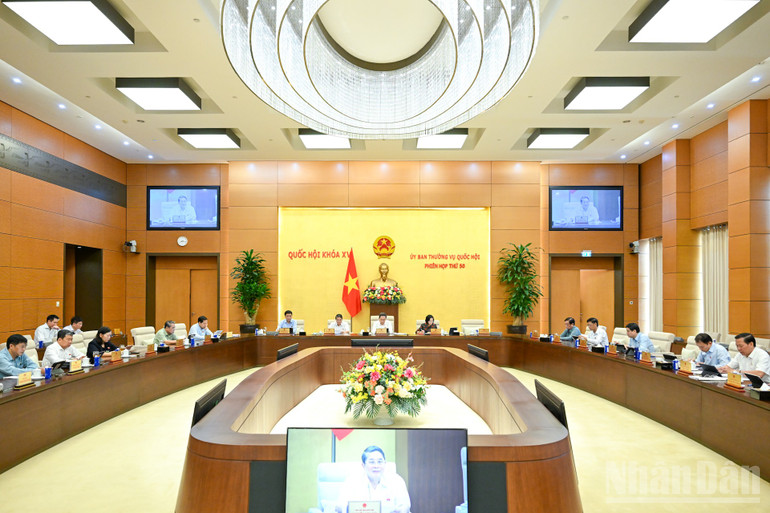
After preliminary examination of the draft Law, the Economic and Financial Committee agreed with the Government's Submission to the National Assembly Standing Committee for consideration and comments, and decided to add it to the 2025 Law and Ordinance Development Program and the 10th Session Program for the National Assembly to comment, consider and approve according to the shortened order and procedures.
The Economic and Financial Committee agreed to remove the content of specialized price inspection within the scope of the draft Law and related provisions to ensure compliance with the Inspection Law No. 84/2025/QH15. At the same time, it basically agreed to amend the regulations on price stabilization as proposed by the Government to ensure implementation according to the two-level government model. However, the proposal and implementation of price stabilization at the commune-level government need to be considered to ensure feasibility in terms of resources, human resources, and scope of price stabilization for effective implementation.
Regarding the list related to national reserve goods, the Economic and Financial Committee believes that, as stipulated in the draft Law, in essence, the list of national reserve goods and national reserve goods in the field of national defense and security in cases where the State determines prices are all implemented through 4 forms: purchasing by designated bidding, direct purchasing widely from all subjects, direct selling widely to all subjects, and designated selling. Therefore, it is recommended that it is necessary to review the regulations to unify them, and that ministries and branches implementing reserves must determine prices for reserve goods when implementing the above 4 forms.
Promote decentralization and delegation of authority in price management
Commenting on the draft Law, members of the National Assembly Standing Committee said that the scope of this amendment is not much, mainly focusing on implementing the policy of streamlining the organizational apparatus and ensuring consistency and unity with related Laws, implementing the policy of promoting decentralization and delegation of power in the context of implementing a two-level local government organization.
National Assembly Chairman Tran Thanh Man requested agencies to promote decentralization and delegation of power in price management, especially increasing technological support (digitalization, AI) for commune level to improve operational efficiency; reduce and simplify administrative procedures, not to affect business operations. In particular, the State must always manage and regulate the market, not to let prices increase unreasonably.
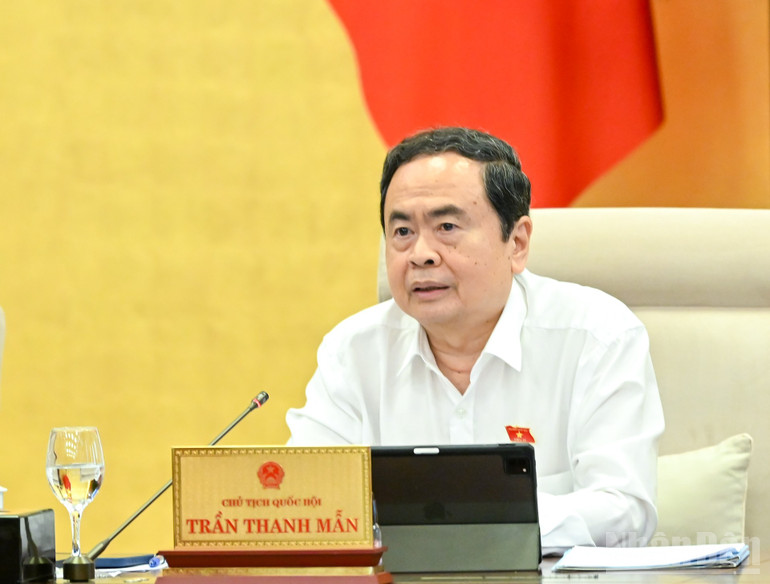
The National Assembly Chairman requested the Ministry of Finance to clarify the reason for extending the specialized price inspection period from 10 days to 15 days, with the view that it should be considered to shorten it to avoid causing difficulties for businesses. In addition, contents such as expanding the Price Stabilization Fund (from non-state budget sources), improving price appraisal standards according to international practices, and strengthening the management of price databases are also core issues emphasized to tighten discipline and order in price management.
Agreeing with the National Assembly Chairman's viewpoint, members of the National Assembly Standing Committee supported the strengthening of decentralization and delegation of power in price stabilization implementation, but noted that it must go hand in hand with improving the capacity of grassroots organizations to ensure feasibility.
Chairman of the Delegation Work Committee Nguyen Thanh Hai said that price stabilization is an issue of great concern to voters, especially in sensitive periods such as after natural disasters, epidemics or holidays, when prices of essential goods tend to escalate. However, citing data from the Ministry of Home Affairs' 2024 report, each commune currently has only about 0.6 full-time financial and accounting officers on average. According to Chairman Nguyen Thanh Hai, assigning the additional task of price stabilization, which requires professionalism and often involves a large area, can lead to overload and lack of professionalism at the grassroots level, directly affecting people's lives.
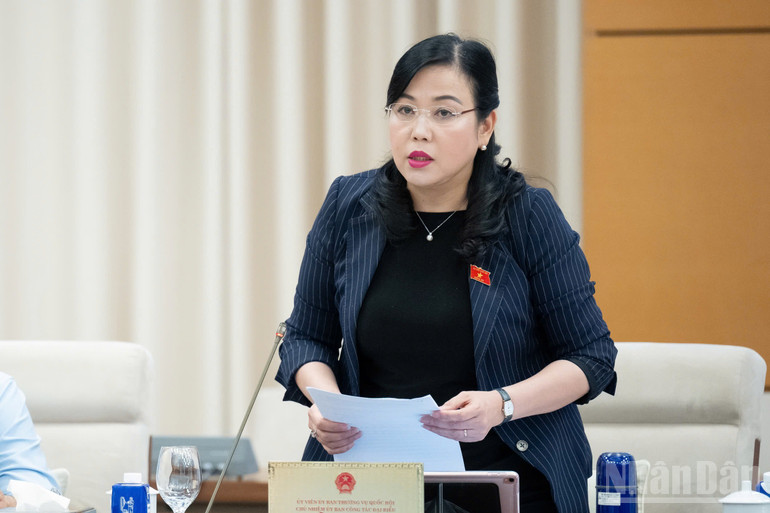
To ensure feasibility and effectiveness, Chairman Nguyen Thanh Hai suggested that the drafting agency should study and supplement regulations on the mechanism of authorization or linkage of price management between the commune and provincial levels. At the same time, there should be specific instructions on the responsibility of coordination between relevant departments, branches and commune-level authorities in organizing price stabilization.
In response to the comments raised by members of the National Assembly Standing Committee, Finance Minister Nguyen Van Thang emphasized that the drafting agency will continue to review and ensure consistency between the provisions of the Law on Prices and relevant legal provisions.
The Minister of Finance said that the Law on Prices continues to strengthen the principle of price regulation management according to the market mechanism. The State respects the right of business organizations and individuals to self-determine competitive prices. The State only indirectly affects the market price level through macroeconomic tools and some other regulatory tools such as: price stabilization, declared prices, reference prices, inspection and handling of violations of price laws, thereby helping to stabilize the market.
Therefore, regarding the issue of price stabilization, the drafting agency persistently proposed assigning this task to the commune level, arguing that the provincial level has a large area and it is difficult to promptly implement intervention measures when prices fluctuate. Assigning it to the commune level - that is, the grassroots level - will ensure quick response, closely following local realities.
Regarding the challenges related to staff capacity and implementation at the commune level, to solve this problem, the drafting agency affirmed the urgent need to improve the capacity of implementation by focusing on training staff in finance, accounting and budgeting. This is an urgent requirement, not only for the price sector but also in the context of the Politburo's strong direction on reforming the local government model.
Source: https://nhandan.vn/phan-cap-phan-quyen-trong-binh-on-gia-phai-gan-voi-nang-luc-to-chuc-thuc-hien-post914041.html




![[Photo] President Luong Cuong attends the 80th Anniversary of the Traditional Day of Vietnamese Lawyers](https://vphoto.vietnam.vn/thumb/1200x675/vietnam/resource/IMAGE/2025/10/09/1760026998213_ndo_br_1-jpg.webp)
![[Photo] Prime Minister Pham Minh Chinh chairs a meeting of the Government Standing Committee on overcoming the consequences of natural disasters after storm No. 11](https://vphoto.vietnam.vn/thumb/1200x675/vietnam/resource/IMAGE/2025/10/09/1759997894015_dsc-0591-jpg.webp)

![[Photo] General Secretary To Lam visits Kieng Sang Kindergarten and the classroom named after Uncle Ho](https://vphoto.vietnam.vn/thumb/1200x675/vietnam/resource/IMAGE/2025/10/09/1760023999336_vna-potal-tong-bi-thu-to-lam-tham-truong-mau-giao-kieng-sang-va-lop-hoc-mang-ten-bac-ho-8328675-277-jpg.webp)






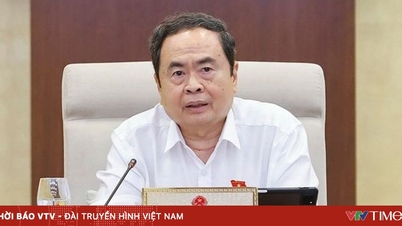






![[Photo] President Luong Cuong attends the 80th Anniversary of the Traditional Day of Vietnamese Lawyers](https://vphoto.vietnam.vn/thumb/402x226/vietnam/resource/IMAGE/2025/10/09/1760026998213_ndo_br_1-jpg.webp)
![[Photo] General Secretary To Lam visits Kieng Sang Kindergarten and the classroom named after Uncle Ho](https://vphoto.vietnam.vn/thumb/402x226/vietnam/resource/IMAGE/2025/10/09/1760023999336_vna-potal-tong-bi-thu-to-lam-tham-truong-mau-giao-kieng-sang-va-lop-hoc-mang-ten-bac-ho-8328675-277-jpg.webp)













































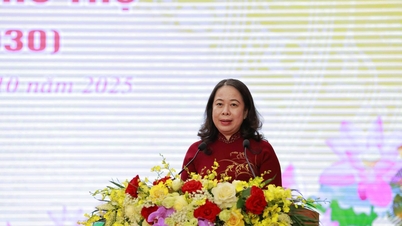
























Comment (0)